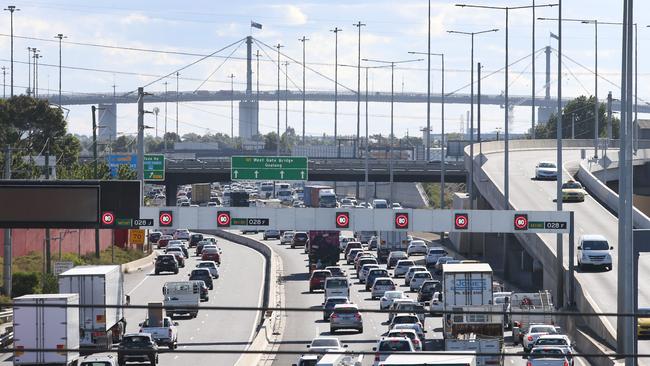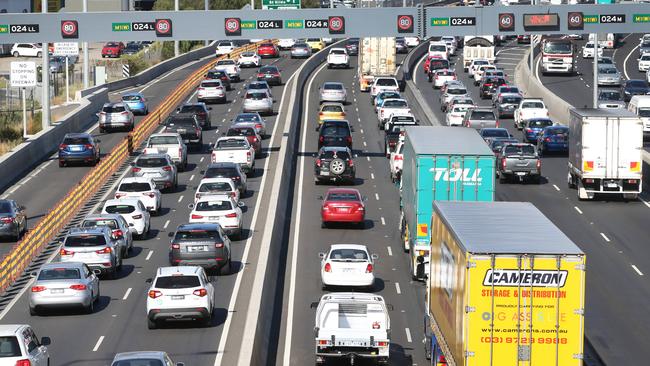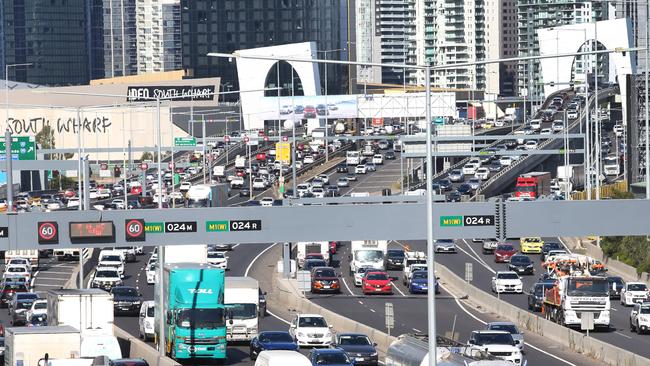Melbourne drivers are sticking to their neighbourhoods amid congestion woes
Increased congestion and traffic snarls are prompting more Victorians to change the way they drive. Here’s what that means for the future of urban planning.

VIC News
Don't miss out on the headlines from VIC News. Followed categories will be added to My News.
Melburnians are sticking to their neighbourhood as the city’s congestion woes turn them off travel.
New research shows city-dwellers are travelling by car 57 per cent less often than two years ago.
They’re instead embarking on longer, less frequent journeys.
Intelematics senior product manager John Cardoso, whose organisation captured the travel data through thousands of sensors on roads and vehicles, told the Sunday Herald Sun: “The whole experience of being on the roads is getting worse.”
“The frequency of travel is declining but the length of those trips is increasing,’’ Mr Cardoso said.
“It leads you to the assumption that people are trying to do less frequent trips and more in one go.

“Instead of doing three short trips you do one long trip and try to run all your errands in a single day because it’s too much of a disruption.
“You just take that day of the week to get everything done.”
Intelematics data, also using information from road authorities, shows Melburnians drive an average 7.7km a trip — up from 6.5km a year ago.
Over the same period traffic snarls worsened with 39 per cent of roads congested on any given day.
Mr Cardoso said lifestyle trends were also causing more people to stay in their local area — especially on weekends.
“People are using more and more delivery services so they go out less,’’ he said.
“If you look at recent trends around eating at restaurants those numbers are declining and the likes of Deliveroo and Uber Eats are spiking.
“You have a whole generation that has grown up with service on demand.
“It’s not only about the traffic itself but it’s also around changes in culture and habits.”

RMIT research fellow Dr Lucy Gunn said urban planners were increasingly conscious of housing people within walking distance of services like shops and healthcare.
“If you put people close to what they need they no longer need to drive,’’ Dr Gunn said.
“It’s faster, it’s easier, it’s healthier for them and they’re more socially connected and it creates a safer environment.”
MORE: GRIDLOCK EXTENDS TO OUTER SUBURBS
INNER CITY TRAFFIC TAX PLAN REJECTED
Services in outer Melbourne were “wildly far apart” however with residents forced to drive between 10km and 30km just to access them or get to work.
“I suspect people’s behaviour is different in different parts of the city,’’ Dr Gunn said.
“In the outer suburbs they have to drive pretty much everywhere because transport just doesn’t go where they need to.”


